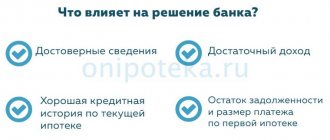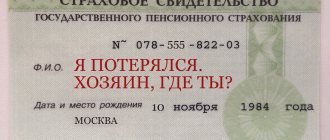Important! If you are handling your own theft case, you should remember that:
- Each case is unique and individual.
- Knowledge of the laws is desirable, but does not guarantee a solution to your particular problem .
- The possibility of a positive outcome depends on many factors .
Get a free consultation with a lawyer with the support of the Ministry of Justice of the Russian Federation
The Criminal Code of the Russian Federation contains several terms that seem synonymous to the average person - robbery, robbery and theft. In this article we will talk about the last crime, which from the point of view of law is considered secret theft of property.
The difference between petty or grand theft and robbery is that robbery is the open theft of things of varying value, and robbery is an attack on a victim with the intent to rob. But if a child tried to stealthily take goods from a store without paying for it, or took something from a friend’s apartment without asking, his offense is classified as theft, and appropriate liability is assigned, most often administrative.
How and for how long can a child thief be punished? Every minor must understand that his illegal actions will certainly be detected and he will be held accountable. In our country, according to the Criminal Code of the Russian Federation, it begins at the age of 16. However, there are also penalties for any crimes committed by 14-year-olds.
What punishment will a person under 18 years of age suffer?
According to Art. 87 of the Criminal Code of the Russian Federation, minors are persons from 14 to 18 years old. For committing theft, a minor can either be punished or educational measures can be applied to him.
Let us schematically depict the types and features of punishments that can be applied for theft committed by a minor:
| Type of punishment | Peculiarities |
| Fine | Amount : from 1,000 to 50,000 rubles / wages of a minor for a period of 2 weeks to 6 months Can be collected from parents/adoptive parents with their consent |
| Mandatory work | Term: from 40 to 160 hours in free time from study or work Minor aged 14 - 15 years: maximum 2 hours per day. Minor aged 15 - 16 years: maximum 3 hours per day. |
| Correctional work | Term: from 2 months to 1 year. General rule: can only be appointed from 16 years of age. Exception : can be assigned to a minor aged 14-15 years if he is officially employed. |
| Restriction of freedom | Duration : from 2 months to 2 years. |
| Deprivation of liberty |
|
Let us note that the specific type of punishment is established by the court individually after carefully studying all the circumstances of the theft, as well as the identity of the minor.
If the crime is committed in a store
Most often, teenagers commit so-called shoplifting, that is, shoplifting. Minors hope that their actions will go undetected and they will not be held accountable for stealing a few products from a store or a small accessory from a clothing store.
For their illegal actions, minors can be brought either to criminal liability (Article 158 of the Criminal Code of the Russian Federation) or to administrative liability (Article 7.27 of the Administrative Code).
Reference. According to Art. 2.3 of the Code of Administrative Offences, a person is subject to administrative liability from the age of 16, including for committing petty theft. To bring a minor to administrative responsibility, it is necessary that the offender steal property worth less than 2,500 rubles.
For example, if 17-year-old A. enters a store and secretly steals products, the total cost of which is 900 rubles, he will be subject to administrative liability under Part 1 of Art. 7.27 Code of Administrative Offences .
If A. steals food worth 2300, then his actions are qualified under Part 2 of Art. 7.27 Code of Administrative Offences .
Let's consider the types of administrative punishment applied to a minor for petty theft from a store:
| Petty theft in a store for an amount less than 1000 rubles | Petty theft in a store in the amount of 1000 to 2500 rubles | |
| Fine | Five-fold reimbursement of the value of the stolen property (at least 1000) | Five-fold reimbursement of the value of the stolen property (at least 3000) |
| Mandatory work | Up to 50 hours | Up to 120 hours |
Art. 32.2 of the Code of Administrative Offenses prescribes that if a minor has no income, an administrative fine must be collected from the parents.
Responsibility of parents for theft committed by children
Children under sixteen years of age are not prosecuted under the Code of Administrative Offenses and are not considered offenders, but this does not mean their complete impunity. An administrative penalty may be imposed on their parents, and they themselves may be registered with the juvenile police department.
In addition, if a child has committed an administrative offense and, moreover, a criminal offense, his parents may be subject to an inspection by the guardianship and trusteeship authorities regarding the adequacy of the upbringing and care of the child.
If committed in complicity with a person under 18 years of age
Teenagers often commit theft in the company of someone else in order to simplify the process of confiscating property. There are also situations when minors are involved in committing theft, because they do not understand what responsibility may arise for their actions.
Let's consider the qualifications in each specific case:
- Let's imagine that A. and B., who were 14 years old, agreed in advance to wait until their neighbor G. fell asleep and stole his laptop.
In this situation, it is obvious that A. and B. will be subject to criminal liability for theft committed by a group of persons by prior conspiracy, since at the time of the commission of the crime they had reached the age of criminal responsibility.
In the absence of other qualifying features, their actions fall under paragraph “a” of Part 2 of Art. 158 of the Criminal Code of the Russian Federation.
- However, how will the actions of the same persons be qualified in the same situation, if A. was 13 years old at the time of the theft, and B. was 14 years old?
In theory, joint actions of two or more persons can be considered as complicity only if, at the time of committing an intentional crime, they have reached the age of criminal responsibility.
That is, from the point of view of the theory, the actions of A. and B. cannot be considered as theft committed by a group of persons.
Reference.
In 2010, clarifications were excluded from PPVS No. 29, according to which the qualifying characteristics “group of persons by prior conspiracy” (clause “a” part 2) and “organized group” (clause “a” part 4) could only be applied in the event that two or more performers acted (clause 12 of the PPVS).
By the perpetrator of the theft, the Supreme Court understood persons subject to criminal liability, that is, those who have reached the age of 14. Due to the fact that the relevant provisions were excluded from the PPVS, judicial practice on this issue is ambiguous (see the section “Judicial practice” Example No. 2 and 3).
- Mediocre execution should be distinguished from group theft, when the perpetrator does not carry out the objective side of the theft on his own, but uses a minor to do it.
Let's give an example: 16-year-old A. persuaded 12-year-old B. to secretly steal V.'s mobile phone. At the same time, A. was in a different place during the theft, that is, he did not carry out the objective side of the crime.
In this situation, A. used B. to commit theft, so he is a mediocre performer (Part 2 of Article 33 of the Criminal Code of the Russian Federation). The qualification of A.’s actions will be under Part 1 of Art. 158 of the Criminal Code of the Russian Federation in the absence of other qualifying features.
- Let's imagine that A. was 18 years old at the time of the theft. For committing a crime, he promised B. half the value of the stolen goods, to which B. agreed.
In this situation, A. should be held criminally liable not only for theft, but also for involving minor B. in committing theft under Art. 150 of the Criminal Code of the Russian Federation.
Recommended reading:
Commentary of the Supreme Court PP to Art. 158 of the Criminal Code of the Russian Federation (Theft)
Dimensions of theft
Complicity in committing theft
Responsibility for minors
On the responsibility of minors
A minor, like any citizen, has rights and responsibilities and is legally responsible for his actions to the state and other people.
This responsibility depends on the age and severity of the act committed. In order to prevent the commission of offenses and be able to defend against unfair accusations, you need to know the basic provisions of the legislation on the responsibility of minors.
The main duty of anyone, including minor citizens, is to comply with the laws and not commit offenses, as well as not to violate the rights and legitimate interests of others.
For failure to fulfill this obligation, a citizen, including a minor, may be subject to four types of legal liability:
- criminal;
- administrative;
- legal;
- disciplinary.
In addition, a minor may be sent to a specialized educational institution, which is not formally considered a punishment, but is also punishable for committing an offense.
Criminal liability of minors
Criminal liability is the strictest type of liability. It occurs for committing crimes, that is, the most dangerous offenses.
Criminal liability begins as a general rule at the age of 16, but for many acts that are crimes, at the age of 14. For example, from the age of 14, criminal liability begins for murder, intentional infliction of grievous or moderate harm to health (including, for example, in a fight), rape, theft, robbery, extortion, knowingly false reporting of an act of terrorism, vehicle theft, hooliganism under aggravating circumstances, theft or extortion of narcotic drugs and others. It must be borne in mind that committing a crime as part of a group (that is, by several people) is an aggravating circumstance and entails a more severe punishment.
Criminal penalties for minors are: fine (if the minor has independent income or own property), deprivation of the right to engage in certain activities (for example, entrepreneurship), compulsory work (work performed in free time from study, without pay), correctional labor ( work at a place designated by the city or district administration, with deduction from earnings), arrest and imprisonment for a certain period (up to ten years).
If a minor has committed a crime of minor or moderate gravity, his punishment may be replaced by compulsory educational measures (consisting, for example, of placing him under the supervision of a specialized body, the obligation to compensate for the harm caused, a ban on visiting certain places, limiting his stay outside the home, etc.) . In addition, at the discretion of the court, a minor may be sent to a specialized educational institution for a period until the age of majority, but not more than 3 years.
Procedure for criminal prosecution:
If the police or prosecutor's office receive information about the commission of a crime, these facts are first checked, then, if the facts are confirmed, a criminal case is initiated and an investigation begins. At the end of the investigation, the case is transferred to the court, which considers the case and makes a verdict.
At the verification stage, if a minor is involved in a crime, he may be interviewed. If a criminal case has already been initiated and an investigation has begun, then they may be summoned for interrogation, which must be carried out according to certain rules: if a minor is a victim or witness, then he can be present during the interrogation, and if he is under 14 years old, a teacher must be present, and, if desired, he can also one of the parents. In this situation, if the teenager is under 16 years old, you can be summoned for questioning through your parents or guardians, or through the administration at the place of study or work.
If a teenager is 16 years old or older, then he may be subject to criminal prosecution for knowingly giving false testimony or refusing to testify, which is warned about at the beginning of the interrogation.
If a minor is suspected or accused of committing a crime, a defense attorney must participate in the interrogation. If the minor has not reached the age of 16, then it is mandatory that a teacher or psychologist also participate in the interrogation. Parents can also participate in interrogation and other investigative actions on the basis of a decision on their admission. A minor can be summoned for questioning only through legal representatives (parents, guardians); The only exception is the case when the minor is in a special educational institution. The participation of a defense attorney must be ensured, and the participation of parents must be ensured at their request also during other investigative actions (search, confrontation, etc.).
If a minor is suspected of committing a crime for which a sentence of imprisonment may be imposed, he may be detained provided that he was caught at the scene of the crime or immediately after it was committed, or victims or eyewitnesses of the crime indicate him, or he has evidence obvious traces of a crime were found, as well as in some other cases, for example, if his identity has not been established. Parents or guardians must be notified immediately of the arrest. From the moment of detention, a minor has the right to demand the provision of a defender (lawyer). The teenager must be immediately explained on what basis and on what suspicion he is being detained. Within 3 hours, a detention report must be drawn up, which must be carefully read and signed, if everything in it is correct. A minor can be detained for a period of no more than 48 hours (this period can be extended to 72 hours), after which they must be released, or, based on a judge’s order, taken into custody, which is allowed only on suspicion of committing a serious or especially serious crime.
After arrest, the minor must be questioned. Before the start of the interrogation, at his request, a private meeting with the defense attorney must be provided. The interrogation procedure here is the same as described above.
It should also be borne in mind that during an arrest, and in all other cases, police officers have the right to use physical force, including combat techniques, but only to suppress crimes and administrative offenses, detain the persons who committed them, and overcome opposition to legal requirements, and only if non-violent methods do not work. At the same time, when using physical force, special means or firearms, a police officer is obliged to: warn of the intention to use them, while providing sufficient time to comply with the requirements of the police officer, strive to ensure that the damage caused is minimal; ensure that persons who have received bodily injuries are provided with pre-medical care and that their relatives are notified as soon as possible. The detainee himself is obliged to obey the lawful demands of the police.
Administrative responsibility of minors
This type of liability is more lenient than criminal liability and occurs for less dangerous offenses.
Administrative responsibility begins at the age of 16. Examples of administrative offenses are: promotion of narcotic drugs, prostitution, petty hooliganism, violation of traffic rules (including ticketless travel), failure to comply with the requirements of a bailiff, appearing intoxicated in public places, etc. However, if you drink alcohol drinks (including beer) or appears in a state of intoxication in a public place, and you are under 16 years old, your parents will bear administrative responsibility. It does not matter how the state of intoxication was achieved: drinking wine, beer, or medications and other substances. Persons who offer you alcoholic beverages or other intoxicating substances are also subject to administrative liability.
The parents of a minor will also be held responsible if they raise you improperly (including, this is possible if the minor commits any antisocial acts, and the guilt of the parents in his improper upbringing will be established).
Administrative penalties, mainly applied to minors, are: fine, paid confiscation of the instrument of the offense (for example, a gun), confiscation of such a weapon (i.e., gratuitous confiscation), deprivation of a special right (for example, the right to hunt or drive a car).
The procedure for bringing to administrative responsibility:
Cases of administrative offenses committed by minors, as well as in relation to them, are considered by commissions on the affairs of minors and the protection of their rights. But, for example, the police can also draw up a report on an offense. You may be detained for committing an administrative offense. The period of detention cannot exceed three hours. Your parents must be notified immediately. If minors are detained, they must be kept separately from adults. After three hours you must be released, but if you arrived in a state of intoxication, three hours are counted from the moment you sobered up.
In the event of an administrative offense, an administrative investigation is carried out, which may include an interview, seizure of material evidence, documents, etc. Then the case is considered by the commission on affairs of minors and the protection of their rights and a decision is made to impose an administrative penalty.
Protection of rights during the investigation and consideration of the case is carried out by parents or guardians. They and the minor can read all the materials of the case, give explanations, present evidence, benefit from legal assistance from a defense attorney and other rights.
Administrative and criminal liability for the same offense cannot be imposed together!
Civil liability of minors
It occurs for causing property damage to someone or causing harm to health, honor and dignity, etc.
Civil liability is property (usually monetary) compensation for harm to the injured person.
Even if a minor caused harm to someone’s health or insulted someone’s honor and dignity, compensation for the harm will need to be made in the form of a certain amount of money.
If a teenager is under 14 years old, his parents or guardians will bear civil liability for the harm you cause.
If a teenager is between 14 and 18 years old, he must compensate for the damage with his property or earnings, and if he does not have it or does not have enough, his parents will compensate.
The procedure for bringing to civil liability:
A person is brought to civil liability by a court decision. This means that if a minor and his parents do not want to voluntarily compensate the victim for damages, he can file a lawsuit against the teenager and/or his parents. As long as the teenager is under 18 years old, his parents (guardians) must represent his interests in civil court, but if he is already 14 years old, the court must also involve the minor in the case if his rights and interests are affected. Civil proceedings do not provide for preventive measures, detention or other coercive measures. Evidence in the case is collected and presented by the plaintiff and defendant themselves.
Criminal and civil liability for the same offense can occur together (for example, imprisonment and compensation for harm (monetary compensation) to the victim). Administrative and civil liability may also occur together.
Disciplinary responsibility of minors
It can only be applied if the minor is working under an employment contract. It occurs for violation of labor discipline (being late, failure to fulfill one’s duties, etc.). There are only three forms of disciplinary liability: reprimand, reprimand, dismissal. There cannot be disciplinary liability in the form of deductions from wages or in other forms. However, if damage is caused to the employer's property, financial liability may arise in the form of compensation for damage.
The procedure for bringing to disciplinary liability:
These three penalties are imposed by orders of the employer. It can be appealed to the labor inspectorate or trade union.
Other measures applied to minors
If a minor aged 11 years or older has committed a criminal offense, but has not yet reached the age of criminal responsibility, or has committed a crime of average gravity, but has been released from punishment by the court, he may be placed in a special closed educational institution. This is done on the basis of a judge's order or a court verdict. The maximum period for which a minor can be sent there is 3 years. This measure is legally considered not a punishment, but a special form of education for minors.
Minors who have committed socially dangerous acts may be temporarily sent to temporary detention centers for juvenile offenders. As a general rule, they are kept there for no more than 30 days.
Minors held in special educational institutions may be subject to penalties such as a warning, reprimand, or severe reprimand.
Another measure applied to minors is exclusion from an educational institution (school, college, etc.). It can be applied for gross and repeated violations of the institution’s charter or the commission of illegal actions by decision of the institution’s administration. However, this measure can only apply to children over 14 years of age.
Date posted: July 29, 2021, 3:44 pm






